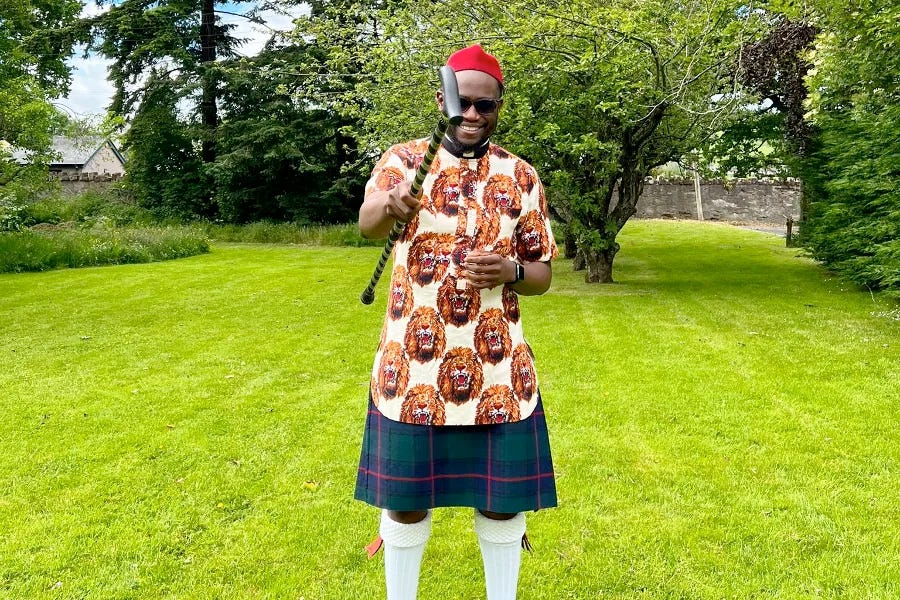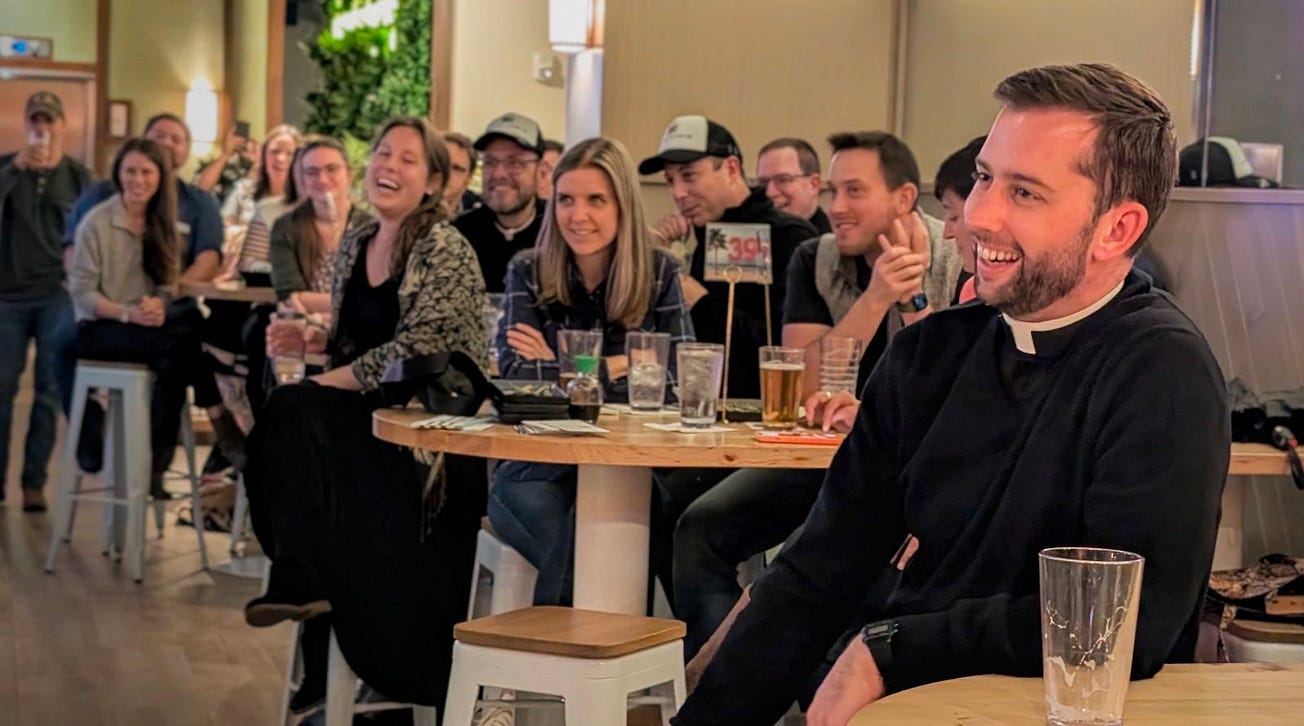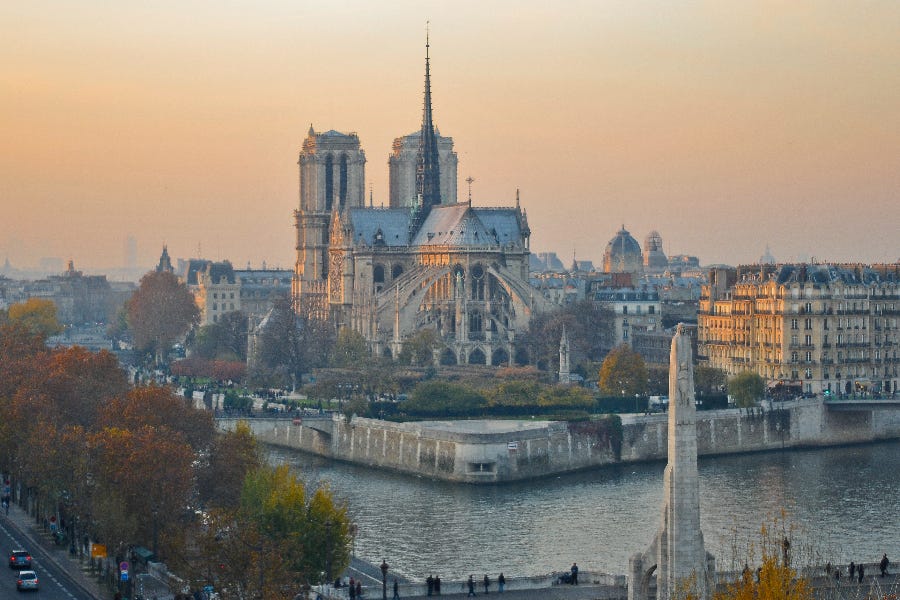Happy Friday friends,
I’ve been on vacation this week and made a real effort not to check the daily bolletini, obsess over my inbox, or get drawn into the usual online madness of social media. I think I have mostly succeeded. I made less successful efforts to stay off my phone, but I still think I resisted more temptations than not.
Of course, things have kept on happening. So here’s a look at what I missed.
The Nicaraguan Diocese of Matagalpa announced early Friday morning that the National Police have raided the diocesan chancery, taking Bishop Rolando Álvarez into custody.
Álvarez, along with several priests and laity, had been detained inside the chancery since Aug. 5, while the bishop was investigated by police for “inciting violence.” Álvarez, an outspoken critic of the administration of President Daniel Ortega, has become the focal point of Catholic persecution by police, amid a crackdown on Church officials by the regime, in which several priests have been arrested, and Catholic radio stations across the country have been shut down.
Read the whole story, and stay up to date here.
—
Cardinal Marc Ouellet, the prefect of the Dicastery for Bishops, was named in a class-action lawsuit filed in his former Archdiocese of Quebec this week.
A woman has accused the cardinal of several instances of inappropriate and unwanted touching while she was a young intern in the archdiocesan chancery. In an interview with Radio-Canada, the woman described the alleged incidents as “quite intrusive for, let’s say, for someone who is my superior, who is the archbishop of Quebec.”
That analysis was quickly proven correct, with the Vatican announcing yesterday that a preliminary investigation into the allegations, which were first presented to the pope more than 18 months ago, had determined that “there are no grounds to open an investigation” into a canonical crime by the cardinal.
That statement notwithstanding, a truly interesting aspect of this story is that the Vatican has been aware of the allegations for more than a year-and-a-half, with the pope appointing a… not obviously qualified priest to look into the matter, while Ouellet remained at the head of the Vatican department in charge of investigating claims of misconduct by bishops around the world.
We spoke to her lawyer, too, who told us she had initially shied away from pressing a civil case.
“She didn’t want to call the lawyers first,” he told us, but did so because after presenting her complaint to the pope “one-year-and-a-half later, she still had no news.”
You can read the whole story here.
—
The accusations against Ouellet, and the news that they were known in Rome for more than a year and a half, have set off waves of speculation.
From the moment the story broke Tuesday, I heard from some people insisting the timing was a political hit against the Canadian cardinal, aimed at tarnishing his reputation and blocking any chances he might have had of being elected by a future conclave.
For what it’s worth, the alleged victim’s lawyer flatly rejected that thesis when talking to us.
And for myself, I find the idea that the allegations are part of a kind of intra-ecclesiastical hit on the last Benedict XVI-era appointee still in a job very unpersuasive.
The cardinal, 78, was by all accounts due to leave his role next month anyway, to make way for a long-awaited new prefect at the Dicastery for Bishops. And however popular he might have been in a previous session, I doubt very much that any future conclave will return a nearly 80-year-old pope.
Far more interesting to me is how and why the allegations were kept so quiet in Rome for more than a year-and-a-half, and a not obviously qualified investigator was appointed to look into the matter, while the cardinal himself was left in post to oversee similar processes against other bishops around the world.
Another theory I’ve heard, mostly from Vatican sources close to the Dicastery for Bishops, is that the allegations against Ouellet may have been kept very quietly on the back burner in Rome, as an unspoken “encouragement” for him to toe the line in his day job. The same people went out of their way to remind me that Francis is often criticized — fairly or not — as preferring to work with people whose secrets he knows.
Those working around the dicastery have said for some time that the department is effectively run by its secretary, Brazilian Archbishop Ilson de Jesus Montanari, with Ouellet acting as more of a figurehead than as a real force in the office, and with neither man sharing much sympathy for the other.
Curial sources routinely report that Pope Francis has wanted to replace Ouellet with Montanari for years, but the archbishop has repeatedly turned down the post, preferring instead to return to Brazil at the end of his current Vatican term.
Francis, I’ve often been told, has kept Ouellet in nominal charge of the dicastery, with Montanari in day-to-day control, while he considers other candidates for the job.
More than a few people in and around the dicastery are suggesting to me that the allegations against Ouellet may have meant he felt pressured to go along with decisions he would otherwise oppose fiercely — like the sacking of Archbishop Michel Aupetit of Paris, who was dismissed last year over allegations similar to his own.
Perhaps that seems a bit too conspiratorial a theory for your tastes. Perhaps it is far-fetched. Or perhaps it’s true.
But whatever the curial politics, it is clear that Pope Francis opted in Ouellet’s case not to dispense the kind of summary justice he’s been willing to use with other bishops. And Ouellet will have known that.
The examples of bishops sacked for seemingly little or no reason continue to tick up, while others seem able to brazen out scandal after scandal — and Ouellet was, apparently, running the department charged with overseeing all these cases with a Damoclean sword over his own head.
Whatever the reason for the pope’s decision, and whatever effect it had on how Ouellet did his day job, that choice is significant.
And it is another line - in bold - on the list of examples some canonists are citing to say that for all Francis’ reforms of rules and processes, the rule of law in the Church has fast become much less certain.
—
—
The regional phase of the Synod on Synodality came to a formal close this week. While we’ve heard a lot about what the synod has looked like in Western dioceses and countries, this week we took a look at the synodal process in Africa.
Pillar correspondent Fr. Justine John Dyikuk spoke with Fr. Hilary Longs, director of synods, pilgrimages, and congresses in the Nigerian Diocese of Bauchi, who talked about the synodal process in a context very different from - say - Germany.
Western dioceses have thus far reported fairly anemic participation rates in their local synodal processes, with many failing to crack even 2% of the local Catholic population.
And among these, as JD mentioned on Tuesday, there has been a bit of a diversity problem. One diocese noted that “the greatest participation [was] from Caucasian adults, with more women than men in attendance, and an average age of 60 and over.”
Contrast this with the Diocese of Bauchi, which, according to Fr. Longs, had a participation rate of more than 20 — that’s two-zero — percent, and included “men, women, children, youth, widows, orphans, priests and laity.”
And while the synodal process in many European countries has seemingly focused on marshaling minority opposition to Church teaching, in Nigeria - where Christians are routinely massacred for their faith - the synod found Catholics “ready and willing to keep the faith without compromising and they will risk their necks to see it grow.”
The synodal process, Fr. Longs told The Pillar, gave local Catholics “a sense of belonging and deepened their faith, a faith that made them to be resolute even when fear should have overwhelmed them.”
“In the Diocese of Bauchi we appreciate the process because it brought about real recognition of the laity’s status and the importance of their involvement in the life of the Church. It also brought about confidence once again in the hierarchy of the Church, contrary to the perceived notion that the hierarchy seem to be solely in control when it comes to suggestions and policymaking.”
This is a far cry from the push for lay governance of the Church, which synodal bodies have demanded in other places.
Of course, the African experience of synodality has its own particular challenges, too.
Fr. Longs noted the issue of tribal sectarianism in the Church in Africa, which he calls “a menace the Church should look into and correct.” But, he said, the synodal process is helping with this.
“If tribalism is unchecked in the Church, it will destroy the early work of evangelization. It can bring about distrust and racial antagonism and these can bring the Church to her knees… The essence of the synodal process is to make us grow above our self-inclinations, above our ethnic and tribal affiliations. Remember our Lord Jesus Christ prayed that all might be one.”
The question it raises for me: How much time and space will be made for African voices at the synod’s final session in Rome?
Africa is where the Church is growing fastest, and if participation in the synodal process is far greater there than in European countries, one would expect the synod’s final document to speak with an African accent.
If it doesn’t, there will be questions about whether perspectives contributed by a small minority of Catholics in Western countries managed to set the synod’s entire global agenda, and why.
—
The Ukrainian Greek Catholic Church is also having a very different kind of synodal process than the rest of the Church.
Last month, the bishops of that Church met in person for the first time since 2019. They had planned to discuss synodality. But, of course, they have had a far more immediate concern to address: the war still being waged in their country.
"When we speak of the vocation of our Church, it is to be with our people where they are and in the different circumstances of their lives,” Bishop Vasyl Tuchapets, exarch of Kharkiv in eastern Ukraine, who heads social ministry efforts for the Ukrainian Church, told our correspondent Anatolii Babynskyi this week.
When the Russian invasion began, most Ukrainian Greek Catholics lived in Ukraine. But with more than 12 million Ukrainians fleeing their homes in the last six months, the UGCC’s members are scattered. And both those who have left and those who remain are suffering.
“Right now, we are first of all analyzing where our faithful are right now, where they have moved, and how long they will be there,” Tuchapets said. “And we understand that today, it's difficult to get reliable data because we don't know how long people will stay in the places where they find themselves.”
While caring for its own refugee people is a priority, at their synod last month, the bishops also discussed the wider concept of synodality, and their Church’s mission — laity and clergy — in their society.
Yurii Pidlisnyi, a chairman of the UGCC's Commission on Family and Laity, told us he believes the Church, especially her social teaching, has a vital role to play in rebuilding Ukraine after the war ends, just as it did in Western Europe after World War II.
“The Church owes a great deal to the laity who kept it alive during the period of Soviet persecution in the catacombs,” he said. “Laymen hid underground priests and organized secret services in their homes.”
“This is a task for all the laity, clergy, and bishops – this is our ‘synodal way’ - so that it does not happen like in the 19th century, when the Church was 50 years late with its social teaching and observed how Marx and Engels shaped the political agenda in Europe.”
Like their brothers and sisters in Nigeria, Ukrainian Catholics are living a very different kind of synodal process than the often derided “meetings about meetings” we’ve heard so much about in our own dioceses.
Read what they are living through, it might change your mind about why this process matters to them.
—
Two realities shaping the future of the Church in the West are the influence of social media on young Catholics, and the ministry of extern African priests in European and American dioceses.
While many people in the Church struggle to speak with much understanding about either phenomenon, Fr. James Anyaegbu is a rare and engaging confluence of both.
Luke Coppen spoke this week with Anyaegbu, as he began a trip across the U.S., about finding his priestly vocation in Nigeria, social media mastery, and life in Scotland. And he’s exactly as interesting as you would expect someone who looks like this to be.
—
Better than I found it
As I mentioned up top, I have been on vacation this past week. I’ve written before that at this time of year I head up to the part of the country where my mother’s family have a lake house.
As an extended family, we’ve been coming here for more than 60 years, and my childhood calendar revolved around the week or two we would spend at the lake with a dozen or so of my cousins. It was a frantic fortnight spent fishing, canoeing, making forts, and doing unspeakable things to lightning bugs in the gloaming.
As an adult without children, I came to appreciate the off-season weeks here with much smaller crowds, sometimes even just my wife and I, spending hours each evening and night staring across the lake or at the stars, wishing I never had to leave the quiet.
Those weeks were never idle, though. I would usually work through the mornings and early afternoons, and in the latter part of the day I’d find some or other project to do about the place.
“Leave it better than you found it” has always been the maxim at the lake house.
It was important when I was a kid and it was my mother and her six surviving siblings cycling through the house with their families all summer.
Now, with their 29 children grown and with families of their own coming through, the maxim is an absolute necessity. Without it, the place would simply collapse in a heap of exhausted siding and sodden timber by early August.
This year there have been the usual hedges to trim, a beehive to burn out, a well tank to dig up and replace, and sundry other things to do. All of them eager contributions to “the joy” my extended family always speaks of sharing in this place.
But the biggest contribution to “the joy” every year is in the mechanics of being together. This last week, my own siblings and I, together with our families, made for 31 people up here, with 19 of them 10 years old or younger.
The ratio of people to full bathrooms was 31:1, so, as you can imagine, enjoying our time together requires everyone to share a certain outlook.
Hanging on the wall in what was my grandparents’ bedroom is a picture of Mother Teresa and a quote: “Unless life is lived for others, it is not worthwhile.”
I discovered some years ago that it may not actually be a line attributable to the saint of Calcutta. Not that it matters. In my head, it has always been something my Grandmother said.
Either way, its truth is the lived experience of this place. To be here, all together, requires that we love one another — if we do not, it is simply unlivable.
We often speak of loving our neighbor, at least I do, but find it much easier to do if neighbors are kept at a respectful and respectable distance.
Familiarity does not necessarily have to breed contempt, but true intimacy is a messy, awkward, demanding, usually humiliating experience for all concerned — consider the man left for dead and the good Samaritan. Yet true love — of family, of neighbor, of anyone — is born of this intimacy, with all it entails.
This was impressed upon me this summer especially, our first since our daughter was born.
For her, adjusting to life with 18 cousins has been a shock, as have been her first experiences of “sharing.” But these little people have loved her, sometimes uncomfortably, sometimes a little violently, and they’ve taught her to stand up, to eat Cheetos, and to play in the sand.
She is a little more, in mind, in heart, and in body, for her time with them. And the family is a little bigger, a little louder, and a little more loving for her being here.
That is, I have come to understand, what it really is to leave this place better than we found it.
See you next week,
Ed. Condon
Editor
The Pillar









